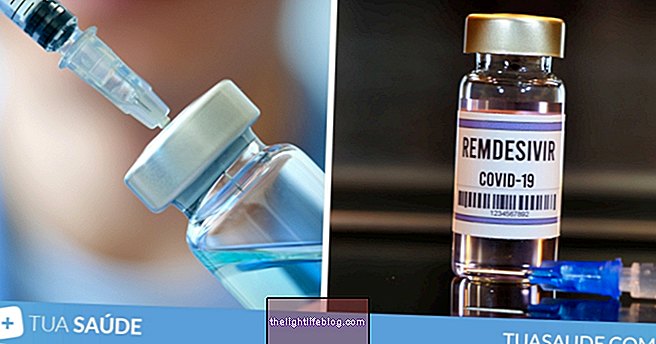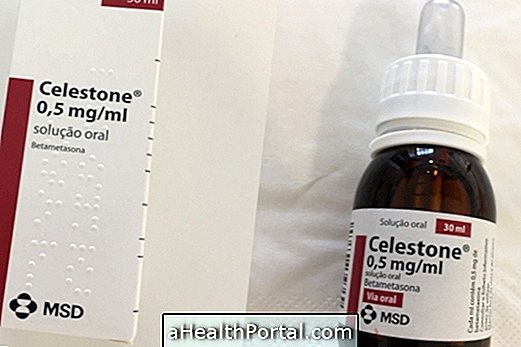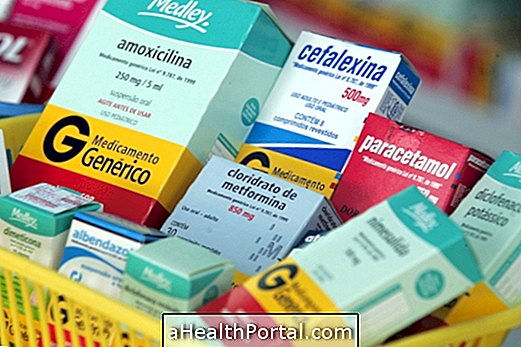Remdesivir is the first antiviral approved by ANVISA for the treatment of COVID-19 in adults and children, who are admitted to the hospital with severe pneumonia, using oxygen therapy.
This medicine, with the trade name of Veklury, was initially developed for the treatment of Ebola, but clinical research with people with COVID-19 has shown that remdesivir is able to prevent the multiplication and replication of the coronavirus, accelerating the recovery time , allowing to reduce the length of stay in the hospital.
Remdesivir is an injectable medicine, administered directly into the vein, and should only be used in hospitalized people with COVID-19, as the person must remain under medical surveillance while receiving remdesivir.

What is it for
Remdesivir is indicated for the treatment of severe pneumonia caused by COVID-19 in adults and children over 12 years of age, who weigh at least 40 kg, and who have low blood oxygen levels being treated with oxygen. However, remdesivir is not suitable for people using or needing a mechanical ventilator.
How does it work against COVID-19?
Remdesivir interferes with the production of genetic material from the coronavirus, which is viral RNA, preventing the virus from multiplying inside a person's cells, which can help the body recover from COVID-19 infection and improve more quickly. .
The main clinical study done with remdesivir [1], NIAID-ACTT-1, involving 1,063 patients hospitalized with COVID-19 showed that patients treated with remdesivir recovered after about 11 days, compared with 15 days for patients who received placebo. For patients with severe illness requiring supplemental oxygen, the recovery time was 12 days for patients who received remdesivir, compared with 18 days for patients who received placebo.
How is remdesivir used?
Remdesivir is used only in hospitals and administered directly into the vein once a day, for a period of 5 to 10 days.
Before using remdesivir, the doctor responsible for monitoring the person must carry out blood tests to make sure that the person does not have conditions that prevent them from using remdesivir safely, such as liver or kidney diseases, for example.
The use of remdesivir for COVID-19 should always be done under the care of the doctor.

Possible side effects
Some side effects that may occur during or shortly after receiving the dose of remdesivir in the vein and that should be reported immediately to the doctor are:
- Severe headache, with the sensation of the neck or ears being throbbing;
- Fast, slow or accelerated heartbeat;
- Wheezing or difficulty breathing;
- Swelling in the face, lips, tongue or throat;
- Nausea;
- Fever, chills or tremors;
- Itchy body;
- Excessive sweat;
- Feeling dizzy, as if you were going to faint.
Remdesivir can also cause liver damage, so the doctor should do liver tests while the person receives remdesivir treatment to prevent liver problems.
Who should not use
Remdesivir should not be used by women who are pregnant or have the potential to become pregnant, so it is recommended to use effective contraceptive methods during treatment with remdesivir.
This remedy should also not be used during breastfeeding, requiring the doctor's assessment of the benefits for the mother in receiving treatment with remdesivir, as it is not yet known whether it passes to the baby through breast milk and the effects that this remedy can have on the baby.
In addition, the use of remdesivir is not recommended for people with impaired liver or kidney function, and should be assessed by the physician if the benefits to the person outweigh the risks of treatment.
Was this information helpful?
Yes No
Your opinion is important! Write here how we can improve our text:
Any questions? Click here to be answered.
Email in which you want to receive a reply:
Check the confirmation email we sent you.
Your name:
Reason for visit:
--- Choose your reason --- DiseaseLive betterHelp another personGain knowledge
Are you a health professional?
NoMedicalPharmaceuticalsNurseNutritionistBiomedicalPhysiotherapistBeauticianOther
Bibliography
- LAMB, Yvette N. Remdesivir: First Approval. Drugs. 1–9, 2020
- NATIONAL HEALTH SURVEILLANCE AGENCY - ANVISA. Anvisa approves registration of vaccine from Fiocruz / AstraZeneca and medication against coronavirus. 2021. Available at:. Accessed on 15 Mar 2021
- BEIGEL, John H .; et al. Remdesivir for the Treatment of Covid-19 - Final Report. The New England Journal of Medicine. 383. 1813-1826, 2020
- PARDO, Joe; et al. The journey of remdesivir: from Ebola to COVID-19. Drugs Context. 2020 May 22; 9: 2020-4-14. 9. 1-9, 2020
- FREDIANSYAH, Andri; et al. Remdesivir and its antiviral activity against COVID-19: A systematic review. Clinical Epidemiology and Global Health. 9. January-March; 123–127, 2021
- DRUGS.COM. Remdesivir Information from Drugs.com. Available in: . Accessed on 15 Mar 2021
- REMDESIVIR. LiverTox: Clinical and Research Information on Drug-Induced Liver Injury [Internet]. 2020. Available at:. Accessed on 15 Mar 2021
- ZAMPINO, Rosa; et al. Liver injury in remdesivir-treated COVID-19 patients. Hepatology International. Jul. 1–3, 2020
- U.S. NATIONAL LIBRARY OF MEDICINE: DRUGS AND LACTATION DATABASE (LACTMED). Remdesivir. Available in: . Accessed on 15 Mar 2021
.jpg)


















